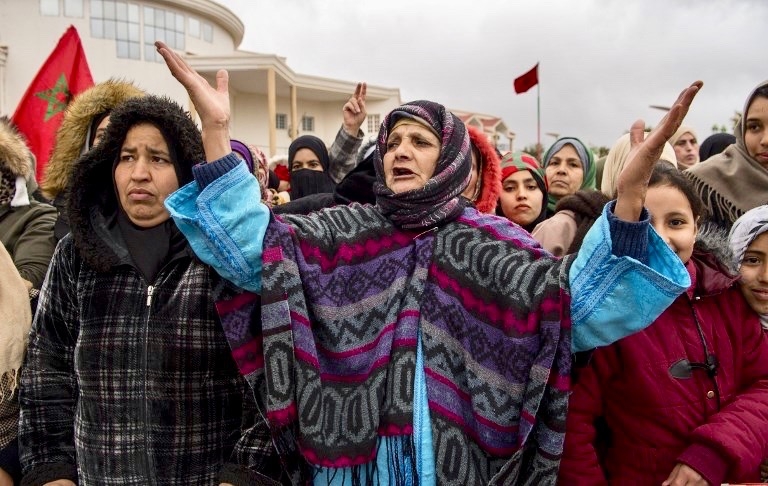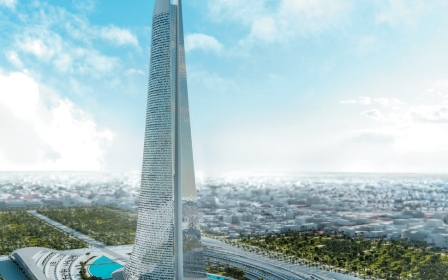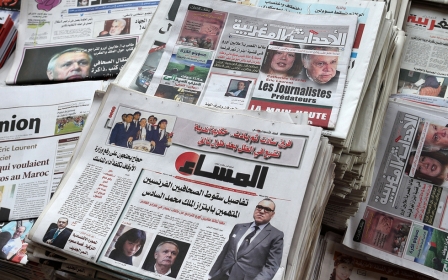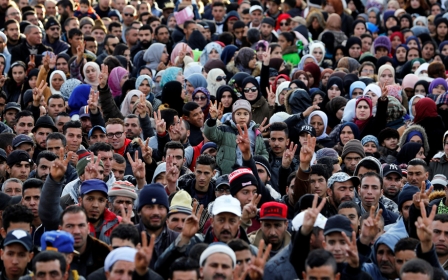Economic protest leaders arrested in Morocco's Jerada

Moroccan authorities have arrested two leaders of protests that began last December in the northeastern Moroccan town of Jerada, relatives said on Sunday.
Amine Mkallech and Mustapha Dainane were arrested on Saturday and were still being held on Sunday, they said.
Dainane was arrested after a traffic accident, according to a statement from the general prosecutor's office in the nearby town of Oujda.
While King Mohammed VI has lifted living standards in urban and coastal regions, public dissatisfaction is growing in some poor areas at a time when the government is implementing currency reforms and cutting subsidies to drive economic growth.
Protests in Jerada began in late December after two brothers drowned when scavenging coal deep underground: one of them hacked through into an adjoining water well, flooding the shaft.
Residents say the town has been neglected since the mines closed about 20 years ago and tensions with Algeria shut the nearby border about the same time.
Dainane gained popularity with spirited speeches during demonstrations in Jerada.
His arrest "has no connection with the events in the city of Jerada," an impoverished former coal mining town, it said.
Mkallech was also arrested in connection with that traffic accident, a member of the Moroccan Association for Human Rights, Said Zeroual, told AFP.
His usually active Facebook page, which displays a photo of Russian revolutionary Vladimir Lenin as its profile image, was no longer available on Sunday morning.
Activists connected to the grassroots Hirak protest movement replaced their Facebook profile pictures with images protesting Dainane's detention, but they were also no longer available.
The accidental deaths in December of the two brothers in a mine shaft, followed by two other deaths under similar circumstances, gave rise to peaceful demonstrations demanding "economic alternatives" for the former coal mining town.
Thousands of people have left the city since Jerada's coal mines, once its economic lifeblood, were shuttered in the late 1990s.
Hundreds of illegal miners risk their lives in closed mine shafts to extract coal, the sale of which is legal thanks to operating permits issued by Moroccan authorities.
The miners say they can sell a bag of coal for $6.50-$8.70 to traders who pass it on to restaurants, hotels and public baths.
"Influential people exploit the miners, who have no other jobs, and officials know about this," said Abdelwahab Hoummani, an activist in Jerada. "We demand jobs, development and the prosecution of corrupt people."
An action plan proposed by the government in February, including health care for former miners with lung disease and inspections of closed mines, succeeded in briefly calming social unrest.
But protests and calls for a general strike have continued, over what many believe to be insufficient government action.
New MEE newsletter: Jerusalem Dispatch
Sign up to get the latest insights and analysis on Israel-Palestine, alongside Turkey Unpacked and other MEE newsletters
Middle East Eye delivers independent and unrivalled coverage and analysis of the Middle East, North Africa and beyond. To learn more about republishing this content and the associated fees, please fill out this form. More about MEE can be found here.




